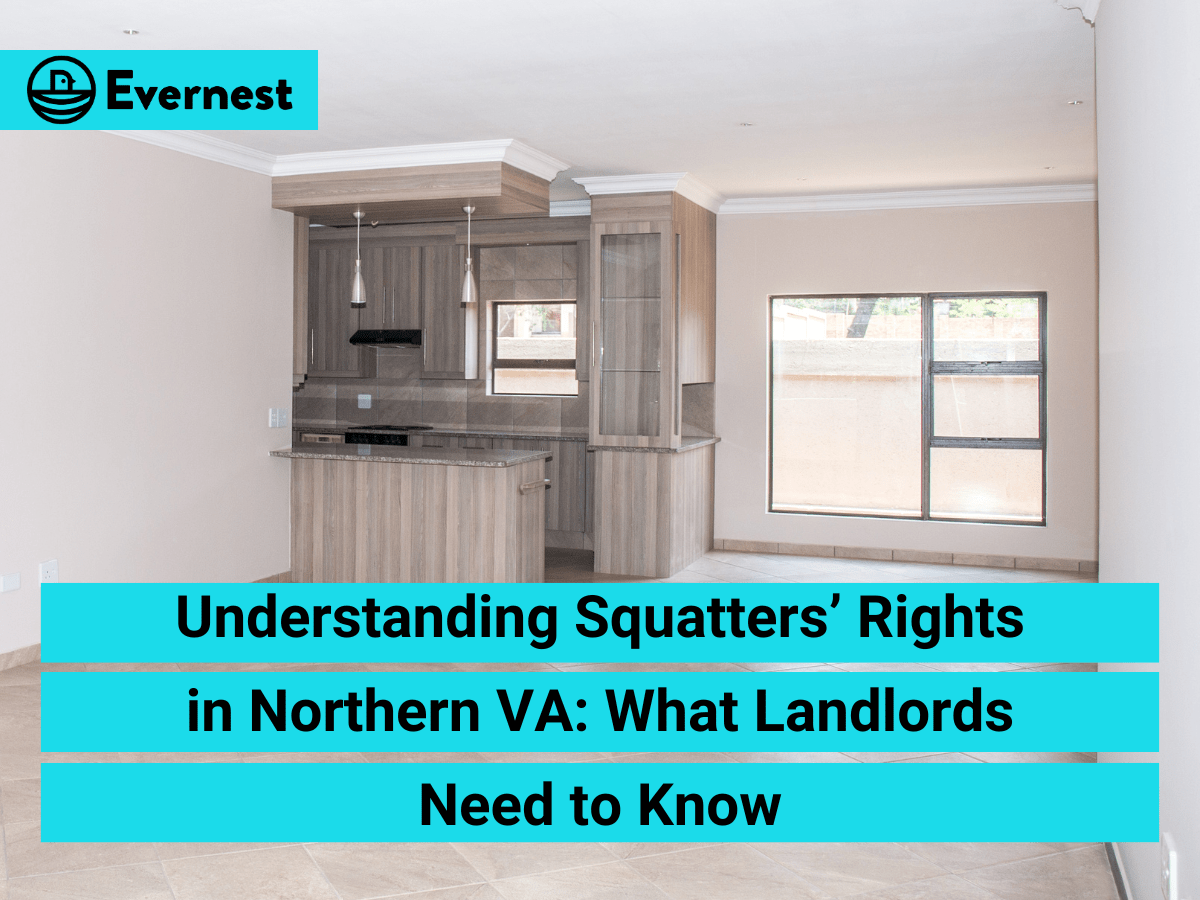Squatters’ rights can be a complex and contentious issue for landlords in Northern Virginia. It is important for landlords to have a thorough understanding of the legal framework surrounding squatting in order to protect their property rights. In this article, we will explore some of the key concepts surrounding squatters’ rights, the consequences of squatting, and some of the best methods for dealing with squatting situations.
Disclaimer: The information provided in this blog does not, and is not intended to, constitute legal advice; instead, all information, content, and materials available in this blog are for general informational purposes only.
The Legal Definition of Squatting
Squatting refers to the act of occupying a property without the owner's permission. It is usually done with the intention of establishing a long term residence and obtaining some sort of legal claim to the property.
To the uninitiated, squatting may sound a lot like trespassing. While the two are related, they are distinct legal concepts with key differences. One difference is that trespassing refers to the simple act of entering a property without permission, whereas squatting refers to the act of occupying a property over an extended period of time. Another key difference is that trespassing is considered a criminal offense, while squatting is dealt with as a civil matter.
The History of Squatting Laws
The history of squatting laws in Northern Virginia can be traced back to the colonial era. During this time, settlers would often occupy land without obtaining formal titles or permissions from the government. As the population grew and land ownership became more regulated, laws were put in place to address the issue of unauthorized occupation.
In the early 20th century, squatting became more prevalent in urban areas as a form of protest against housing shortages and rising rents. Squatters would often take over abandoned buildings or vacant lots, creating makeshift homes and communities. This led to a new wave of legal battles and debates surrounding property rights and social justice.
Over the years, squatting laws have evolved to strike a balance between protecting the rights of property owners and providing certain protections for long-term occupants. It is important for landlords to be familiar with the specific laws and regulations that apply to their jurisdiction.
The Process of Adverse Possession
To establish adverse possession in Northern Virginia, a squatter must meet certain requirements. These requirements vary depending on the jurisdiction, but generally include:
Open and notorious occupation: The squatter must occupy the property openly and without attempting to hide their presence.
Continuous occupation: The squatter must occupy the property continuously for a specific period of time, typically 15 years.
Exclusive occupation: The squatter must have exclusive possession of the property and not share it with the legal owner or anyone else.
Hostile occupation: The squatter must occupy the property without the owner's permission.
Claim of right: The squatter must assert a claim of right to possess the property.
If a squatter can demonstrate that they meet these requirements, they may be able to establish adverse possession and gain legal rights to the property.
Rights and Protections for Squatters
While squatting is generally considered to be illegal, there are certain rights and protections for squatters. In Northern Virginia, a property owner who wishes to remove a squatter from their premises must follow the legal eviction process. This typically involves providing notice to the squatter, filing a lawsuit, and obtaining a court judgment for eviction.
It is important for landlords to familiarize themselves with the specific eviction laws in their jurisdiction to ensure that they follow the proper procedures. Always consult an attorney if you find yourself in the position of needing to evict a squatter.
The Impact of Squatting on Property Owners
Squatting can have significant financial and emotional impacts on property owners. When a property is occupied by a squatter, the owner may lose rental income, face property damage, and experience a disruption to their plans for the property.
Property owners in Northern Virginia should take proactive measures to protect their properties from squatting, such as regularly inspecting vacant properties, securing entrances, and having clear and enforceable lease agreements in place. If you are especially busy or frequently out of town, a local property management company can provide invaluable assistance in keeping an eye on your property.
Squatting and Homelessness
Squatting is often associated with homelessness, as individuals who lack permanent housing may seek shelter in unoccupied properties. While squatting can provide a temporary solution for those experiencing homelessness, it does not address the underlying issue of housing instability.
To address the issue of homelessness, it is important for communities to provide affordable housing options, supportive services, and resources to help individuals and families secure stable housing. If you discover that someone residing on your property is in need of help, you may want to direct them to a local organization who can offer assistance.
Final Thoughts: Squatters’ Rights in Northern Virginia
Understanding squatters’ rights in Northern Virginia is crucial for landlords who want to protect their properties. By having a comprehensive knowledge of the issues and concepts surrounding squatting, landlords can navigate the complexities more effectively. Remember that the best way to deal with squatting is to prevent it from taking place. Any preventive measures that you can take as a property owner will be worthwhile investments.
Looking for a property management company in Northern Virginia who can help keep your property safe? Reach out to our local team to find out how our services can help you protect your investments!


